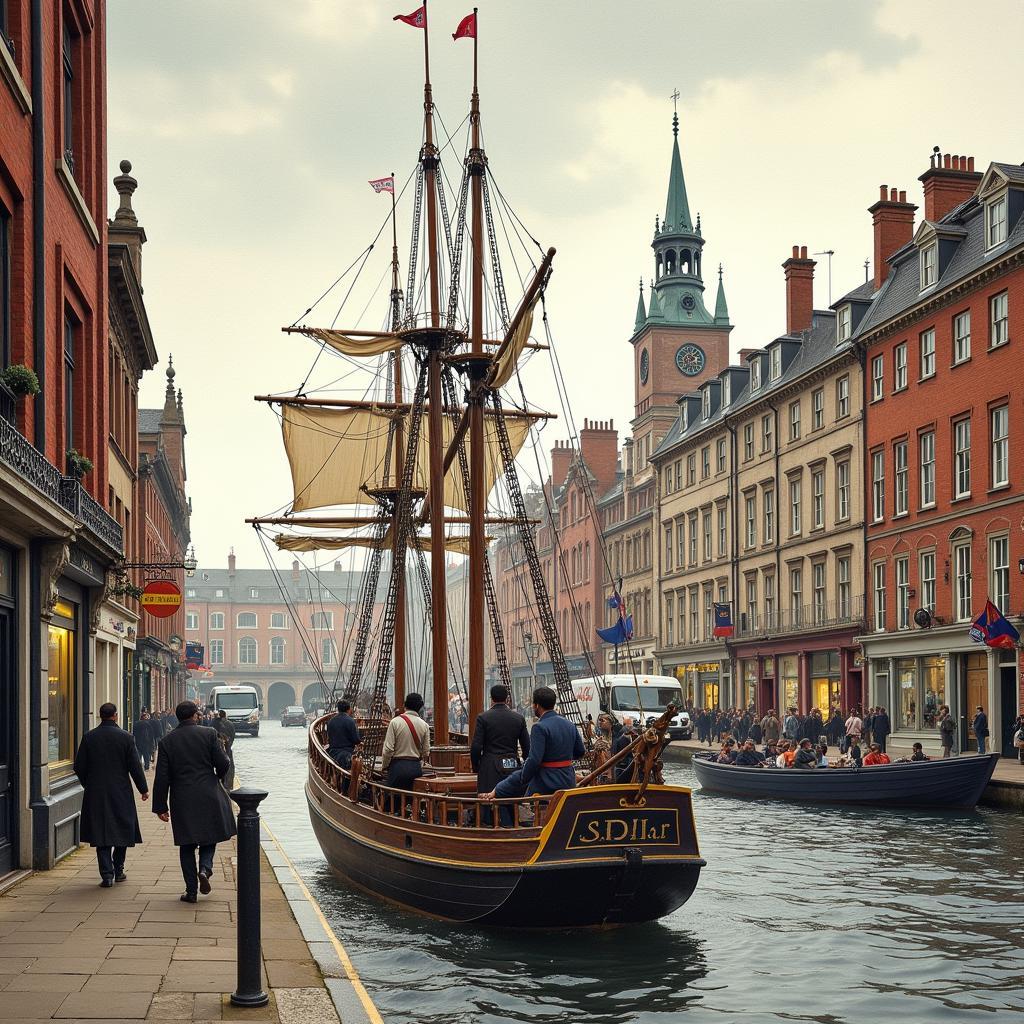African immigration to the UK is a complex and multifaceted phenomenon with a long and intertwined history. From the earliest arrivals during the Roman era to the present day, Africans from diverse backgrounds have contributed significantly to the social, cultural, and economic fabric of British society. This article delves into the history, trends, and contemporary issues surrounding African immigration to the UK, exploring the motivations, challenges, and contributions of African communities in shaping modern Britain.
 African Immigrants Arriving in UK
African Immigrants Arriving in UK
Early African Presence and Colonial Influences
The presence of Africans in Britain predates the transatlantic slave trade, with evidence suggesting settlements dating back to Roman Britain. However, it was during the British Empire’s expansion that African immigration began to take on new dimensions. The colonization of vast swathes of the African continent led to increased interaction and migration between Africa and Britain.
 African Sailors in 18th Century London
African Sailors in 18th Century London
African sailors, soldiers, servants, and scholars traveled to Britain, contributing to the burgeoning maritime trade, military campaigns, and intellectual life of the empire. However, colonial rule also laid the groundwork for unequal power dynamics and racial prejudice that would shape the experiences of African immigrants for generations to come.
Post-War Migration and the Rise of Multicultural Britain
Following World War II, Britain faced labor shortages and actively recruited workers from its former colonies to help rebuild the nation. This period witnessed a significant influx of Africans from countries like Nigeria, Ghana, Kenya, and Uganda.
Many arrived under the British Nationality Act of 1948, which granted citizenship rights to all Commonwealth citizens. These newcomers filled crucial roles in the National Health Service (NHS), transportation, and manufacturing, contributing to Britain’s post-war economic recovery.
This wave of migration also coincided with the rise of multiculturalism as a social and political ideology in Britain. The arrival of diverse communities challenged traditional notions of British identity and led to the gradual recognition and celebration of cultural diversity. However, the integration process was not without its challenges.
Contemporary African Immigration: Drivers and Challenges
Present-day African immigration to the UK is driven by a complex interplay of factors, including economic opportunity, political instability, and family reunification. Many Africans are drawn to the UK’s relatively stable economy, seeking better job prospects, higher wages, and improved living standards.
 African Family in Modern London
African Family in Modern London
Furthermore, ongoing conflicts, persecution, and human rights violations in some African countries have led to an increase in asylum seekers and refugees seeking safety and protection in the UK. The desire to join family members who have already settled in Britain also remains a significant pull factor for African immigrants.
Despite their contributions, African immigrants continue to face challenges. Discrimination, racial profiling, and socioeconomic inequalities persist, impacting their access to housing, employment, education, and healthcare. Navigating complex immigration policies, cultural differences, and language barriers can also pose significant hurdles.
Conclusion
African immigration to the UK is an enduring phenomenon that has shaped and continues to shape British society in profound ways. From the earliest arrivals to the present day, Africans have contributed immeasurably to the cultural tapestry, economic prosperity, and social diversity of Britain.
Understanding the historical context, motivations, and challenges faced by African communities is essential for fostering inclusivity, promoting equal opportunities, and ensuring that Britain remains a welcoming and prosperous destination for future generations of African immigrants.
Leave a Reply